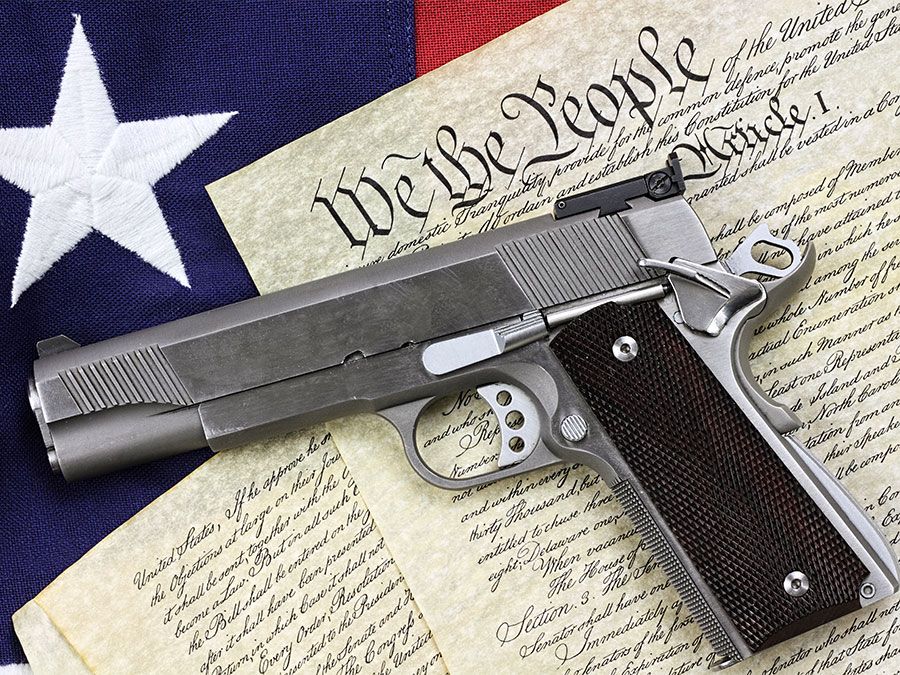
In order to navigate the complexities of firearm ownership, it is crucial to fully understand the laws and regulations governing firearms in your specific state. Each state in the United States has its own set of legislation and guidelines pertaining to firearm possession, carrying, and usage. By familiarizing yourself with these regulations, you will gain invaluable knowledge to ensure your compliance with the law and make informed decisions regarding firearms. This article aims to provide a comprehensive overview of the firearm laws and regulations in your state, equipping you with the necessary information to exercise your Second Amendment rights responsibly.
Background on Firearm Laws
Understanding the Second Amendment
The Second Amendment of the United States Constitution grants individuals the right to bear arms. It has been a topic of extensive debate and interpretation over the years. While the amendment ensures the right to own firearms, it is subject to reasonable restrictions to protect public safety.
Federal Gun Control Laws
In addition to state laws, there are also federal gun control laws that govern firearm ownership and possession. These laws include regulations on background checks, waiting periods, and restrictions on certain types of firearms. Federal gun control laws provide a baseline standard across all states.
State vs. Federal Law
While federal gun control laws set minimum requirements, states have the authority to enact their own firearm laws as long as they do not violate the Constitution. This means that each state may have varying regulations regarding ownership, possession, carry, and transfer of firearms. It is important to be aware of the specific laws in your state to ensure compliance.
Ownership and Possession Laws
Minimum Age Requirements
States have the authority to set their own minimum age requirements for firearm ownership and possession. While federal law prohibits individuals under the age of 18 from purchasing handguns from licensed dealers, some states have even stricter age limits. It is crucial to check your state’s laws to determine the legal age for firearm ownership and possession.
Background Checks
Background checks play a vital role in firearm ownership and possession. Federal law requires licensed gun dealers to conduct background checks on potential buyers to ensure that they are not prohibited from owning firearms. These checks examine criminal records, mental health history, and other relevant factors. Some states may also require background checks for private sales or transfers.
Waiting Periods
Many states have implemented waiting periods for firearm purchases. These waiting periods vary in length and provide a cooling-off period between the purchase and the actual transfer of the firearm. Waiting periods aim to prevent impulsive acts of violence by allowing time for thorough background checks and evaluations.
Firearm Registration
Some states require the registration of firearms. This process typically involves providing information about the firearm, such as the make, model, and serial number, to the appropriate state agency. Registering firearms helps law enforcement trace them in cases of theft or illegal activities. The requirements for firearm registration can vary significantly from state to state.
Prohibited Persons
Both federal and state laws prohibit certain individuals from owning or possessing firearms. These prohibited persons include convicted felons, individuals with restraining orders, those with a history of domestic violence, and people with serious mental health disorders. It is essential to familiarize yourself with the specific criteria in your state to determine who may be restricted from firearm ownership.
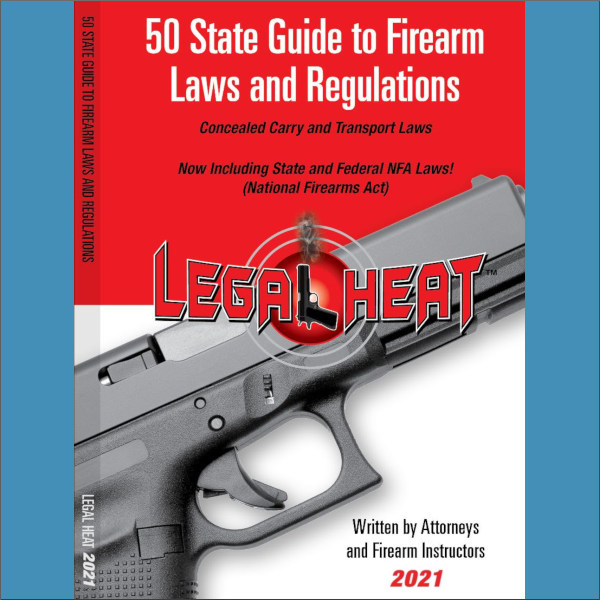
This image is property of accurateshooter.net.
Concealed Carry Laws
Permit Requirements
Concealed carry refers to the practice of carrying a concealed firearm in public. Many states require a permit to carry a concealed weapon. To obtain a concealed carry permit, individuals may need to meet certain criteria, such as passing a background check, completing a training course, or demonstrating knowledge of firearm safety. Each state determines its own requirements for concealed carry permits.
Reciprocity Agreements
Reciprocity agreements are mutual agreements between states that recognize each other’s concealed carry permits. These agreements allow individuals with a valid concealed carry permit from one state to legally carry concealed weapons in another state. It is crucial to research and understand the reciprocity agreements your state has with other states if you plan to carry a concealed weapon while traveling.
Restrictions on Carry Locations
While concealed carry permits grant individuals the ability to carry firearms, certain locations may be off-limits. These restrictions vary by state and can include places like schools, government buildings, private property with signage prohibiting firearms, and certain public areas. Understanding these restrictions is essential to ensure compliance with the law.
Open Carry Laws
Permit Requirements
Open carry refers to the practice of openly carrying a firearm in public. Some states allow individuals to open carry without a permit, while others require a permit. These permits may have specific requirements, such as background checks, training, or age restrictions. It is crucial to understand the open carry laws in your state to determine if a permit is necessary.
Restrictions on Carry Locations
Similar to concealed carry laws, open carry laws also have restrictions on where firearms can be carried. These restrictions can vary from state to state and may include places like schools, government buildings, private property with signage prohibiting firearms, and certain public areas. Familiarizing yourself with these restrictions is vital to avoid legal complications.
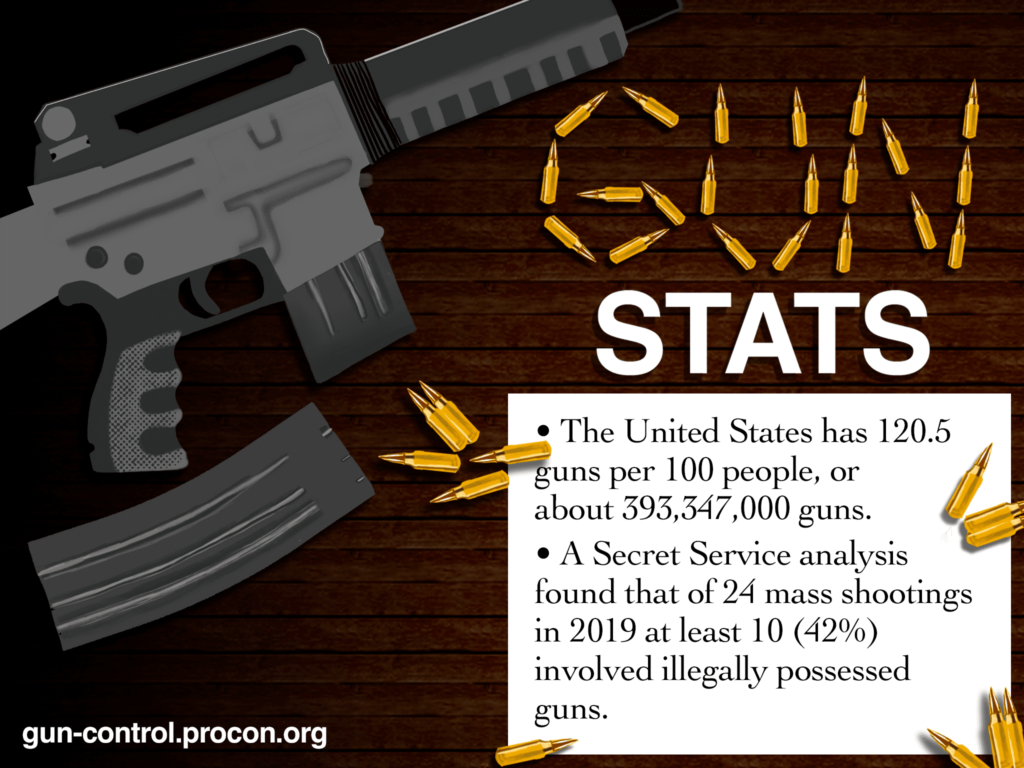
This image is property of reflector.uindy.edu.
Assault Weapons and High-Capacity Magazine Laws
Definition of Assault Weapons
The definition of assault weapons can vary from state to state. Generally, assault weapons are semi-automatic firearms with specific features like detachable magazines, folding or collapsible stocks, and certain types of grips or barrel shrouds. Some states have more specific definitions, while others simply categorize firearms based on features deemed to be characteristic of assault weapons.
Restrictions on Assault Weapon Ownership
Many states have implemented restrictions on the ownership of assault weapons. These restrictions may include bans, registration requirements, or increased scrutiny for purchasing and owning assault weapons. It is important to understand your state’s laws regarding assault weapons to ensure compliance.
Limits on High-Capacity Magazines
High-capacity magazines refer to magazines capable of holding more than a certain number of rounds of ammunition. Some states have enacted laws limiting the possession or sale of high-capacity magazines. These limitations may include bans, permits, or reduced maximum capacities. Understanding your state’s regulations on high-capacity magazines is crucial for legal firearm ownership.
Firearm Transfers and Sales
Private Sales and Background Checks
Private sales or transfers occur when individuals sell or transfer firearms without involving licensed firearm dealers. While federal law requires licensed dealers to perform background checks on purchasers, private sales may not always require such checks. Some states have implemented laws to close this private sale loophole and require background checks for all firearm transfers, regardless of the setting.
Gun Shows and Loopholes
Gun shows are events where firearms and related items are bought, sold, or traded. In some states, private sellers at gun shows may be exempt from conducting background checks on purchasers, creating what is commonly called the “gun show loophole.” However, some states have implemented laws to close this loophole and require background checks for all gun show sales.
Pawnshops and Dealers
Licensed firearm dealers, including pawnshops, have specific regulations and requirements they must follow when selling firearms. These regulations typically include conducting background checks, maintaining proper records, and adhering to laws regarding waiting periods and sale restrictions. Buying firearms from licensed dealers ensures compliance with various laws and regulations surrounding firearm transfers.
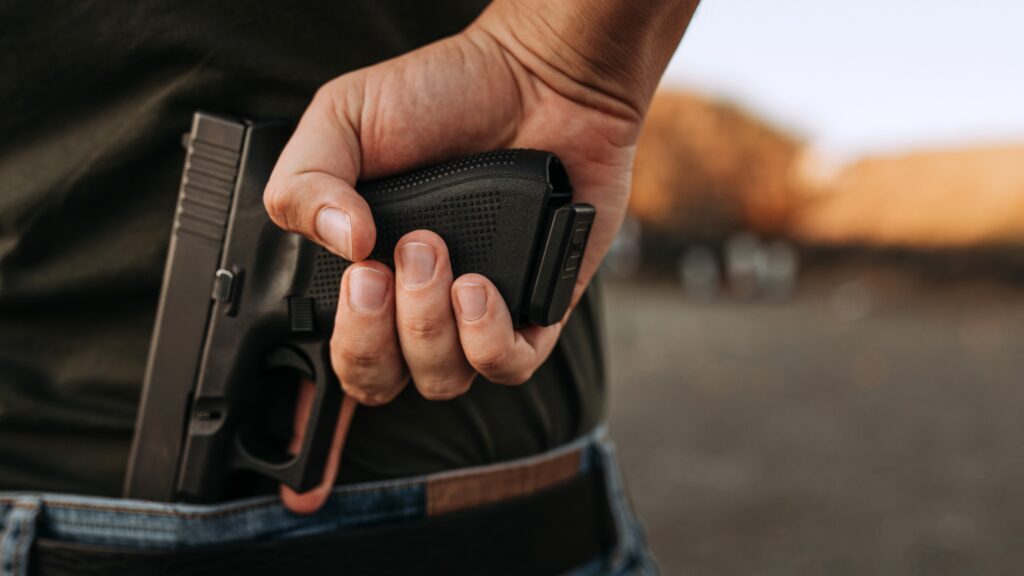
This image is property of www.newsnationnow.com.
Stand Your Ground and Castle Doctrine Laws
Self-Defense Laws
Stand Your Ground and Castle Doctrine laws define the conditions under which individuals can use force, including firearms, in self-defense without a duty to retreat. Stand Your Ground laws generally apply to situations outside of one’s home, while Castle Doctrine laws apply to intrusions within one’s home or dwelling. These laws can vary significantly among states, and understanding the self-defense laws in your state is crucial to avoid legal consequences.
Duty to Retreat
While some states have adopted Stand Your Ground or Castle Doctrine laws, others may still have a duty to retreat. Duty to retreat laws require individuals to first attempt to safely retreat from a situation before using force, including firearms, in self-defense. Understanding the duty to retreat laws in your state is essential to ensure legal compliance when faced with a self-defense situation.
Protection of Property
Stand Your Ground and Castle Doctrine laws not only pertain to self-defense but also extend to the protection of one’s property. These laws grant individuals the ability to use reasonable force, including firearms, to defend their property from intruders or threats. However, the specifics of these laws can vary among states, so it is important to familiarize yourself with the property protection laws in your state.
Felony Firearm Laws
Enhanced Sentences for Armed Felons
Felony firearm laws impose enhanced penalties for individuals convicted of a felony while using or possessing a firearm. The specific enhancements can vary among states but generally result in longer prison terms or additional mandatory minimum sentences. These laws aim to deter armed criminals and protect the public from further harm.
Possession of Firearms by Convicted Felons
Felony firearm laws also prohibit individuals convicted of certain felonies from possessing firearms. These laws are aimed at preventing individuals with a history of violence or criminal behavior from accessing firearms. Violations of these laws can result in criminal charges and additional penalties. It is crucial for convicted felons to be aware of the restrictions on firearm possession in their state.
Residual Rights Restoration
In some cases, individuals who have lost their rights to possess firearms due to a felony conviction may be eligible for residual rights restoration. This process allows certain individuals to regain their rights to possess firearms after meeting specific requirements, such as completing their sentences and demonstrating rehabilitation. The criteria and process for residual rights restoration vary among states.
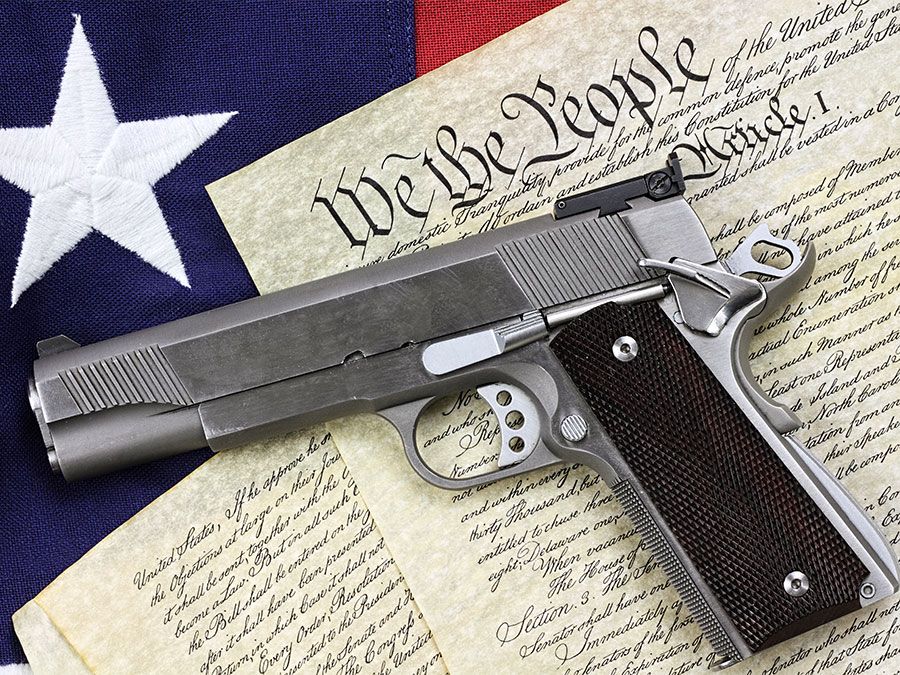
This image is property of cdn.britannica.com.
Firearm Storage and Safety Laws
Safe Storage Requirements
Firearm storage and safety laws aim to promote responsible firearm ownership by requiring proper storage when firearms are not in use. Some states have laws mandating the use of firearm safes, lockboxes, or trigger locks to prevent unauthorized access. These requirements are designed to reduce the risk of accidents, theft, and unauthorized use of firearms.
Child Access Prevention Laws
Child access prevention laws hold firearm owners responsible for ensuring that firearms are stored safely, particularly when children are present. These laws establish criminal liability for negligent storage practices that allow unsupervised access to firearms by minors. Compliance with child access prevention laws is essential to protect children from accidental injury or death.
Trigger Locks and Storage Devices
Trigger locks and other storage devices are mechanisms designed to prevent the unauthorized use of firearms. Some states require the use of these devices when firearms are not in use. Trigger locks, for example, prevent the trigger from being pulled, rendering the firearm inoperable. Utilizing these safety devices promotes responsible firearm ownership and prevents unauthorized access.
Firearm Regulations in Schools and Public Places
Guns on School Grounds
Federal and state laws prohibit firearms on school grounds, including elementary, secondary, and higher education institutions. This prohibition aims to provide a safe learning environment for students and staff. However, some states have exceptions for certain individuals, such as law enforcement officers or authorized security personnel. Understanding the specific regulations surrounding firearms in schools is crucial for compliance.
Armed Teachers and Security Personnel
In response to concerns about school shootings and safety, some states have enacted laws allowing teachers or school staff to carry firearms on school premises. These laws may require extensive training and adherence to specific regulations. The purpose is to provide an additional layer of security in the event of an armed threat. However, these laws are often controversial and subject to debate.
Firearm Restrictions in Public Buildings
Similarly to schools, many public buildings, such as government buildings and certain venues, have strict firearm restrictions. These restrictions are in place to maintain public safety and prevent potential acts of violence. While the specific regulations and exceptions can vary among states, it is important to be aware of the firearm restrictions in public buildings to ensure compliance with the law.
In conclusion, the firearm laws and regulations in each state can vary significantly. Understanding the specific laws in your state is crucial for legal compliance and responsible firearm ownership. Whether it pertains to ownership and possession, concealed carry, open carry, assault weapons, firearm transfers, self-defense, felony firearms, storage and safety, or regulations in schools and public places, familiarizing yourself with the laws in your state is essential. It is always advisable to consult legal professionals or local law enforcement agencies for accurate and up-to-date information regarding firearm laws in your jurisdiction.
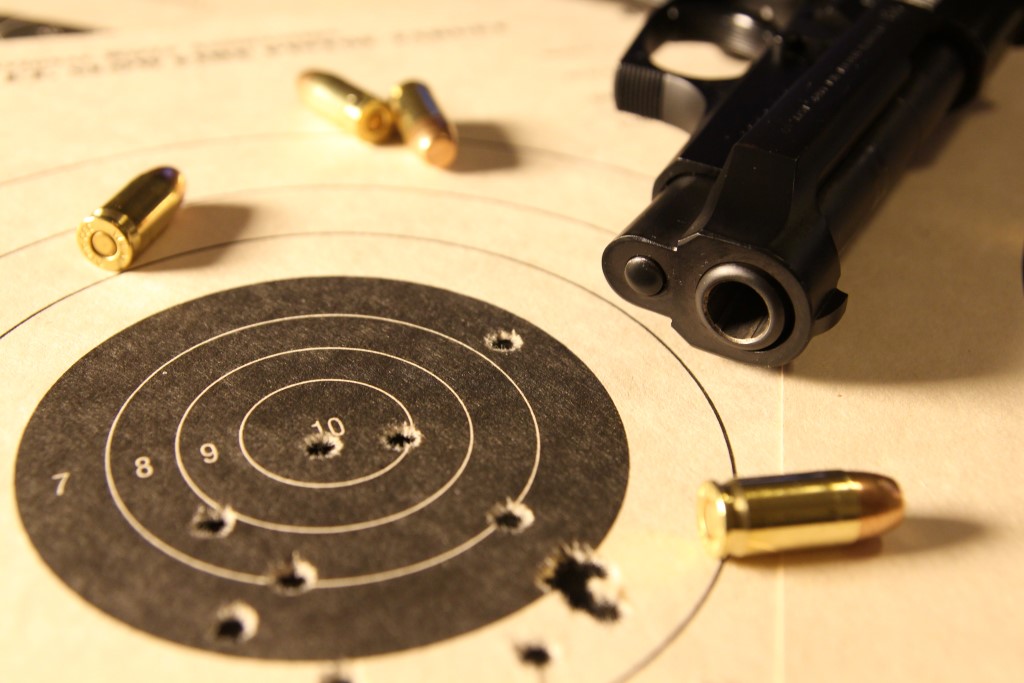
This image is property of nycitylens.com.





